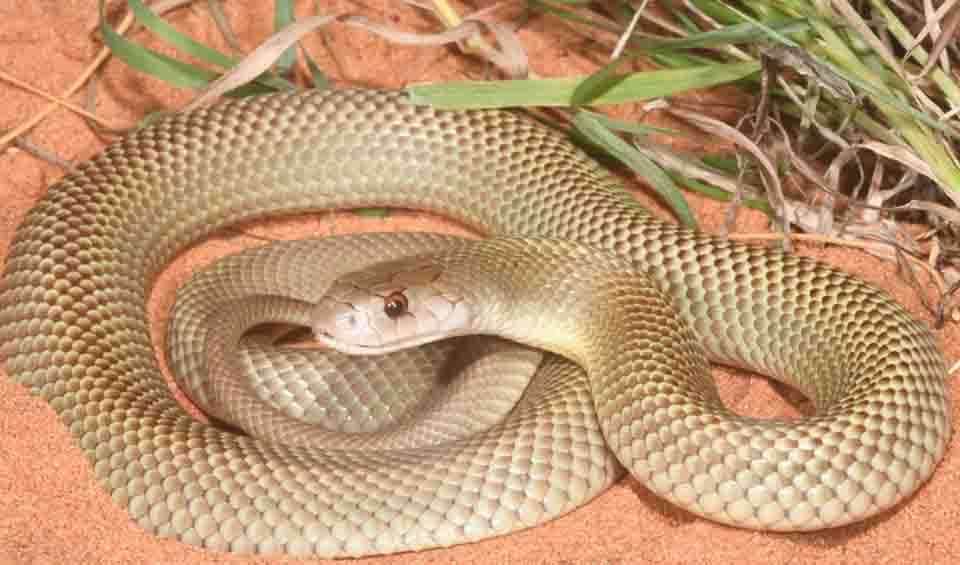Also known as the mulga snake, it is one of Australia’s most well-known and widespread snakes. Despite its name, the king brown snake is not closely related to the brown snake family; it actually belongs to the black snake group. This large and powerful snake is known for its impressive size, strength, and adaptability, making it a fascinating creature in the Australian outback.
One of the most remarkable characteristics of the king brown snake is its adaptability. This snake can be found in a wide range of habitats, from arid deserts and grasslands to woodlands and coastal areas. It is highly versatile and can survive in harsh environments where other snakes might struggle. This adaptability is one of the reasons why the king brown snake is so widespread across Australia.
The king brown snake is an active hunter, and its diet is quite varied. It feeds on small mammals like mice and rats, as well as birds, lizards, and even other snakes. One of the unique aspects of its diet is that it sometimes preys on other venomous snakes, including members of its own species. This snake is known for its ability to tackle large and potentially dangerous prey, thanks to its powerful build and strong venom.
The venom of the king brown snake is less toxic than that of some other Australian snakes, like the eastern brown snake or the inland taipan, but it is still potent and can cause serious harm. The venom contains both neurotoxins, which affect the nervous system, and myotoxins, which damage muscle tissue. Bites from the king brown snake can cause severe pain, swelling, and tissue damage and require prompt medical attention. However, like most snakes, the king brown snake is not aggressive toward humans and will usually only bite if it feels threatened or cornered.
Distribution
 Australia
AustraliaAnything we've missed?
Help us improve this page by suggesting edits. Glory never dies!
Suggest an editGet to know me
Terrestrial / Aquatic
Altricial / Precocial
Polygamous / Monogamous
Dimorphic (size) / Monomorphic
Active: Diurnal / Nocturnal
Social behavior: Solitary / Pack / Herd
Diet: Carnivore / Herbivore / Omnivore / Piscivorous / Insectivore
Migratory: Yes / No
Domesticated: Yes / No
Dangerous: Yes / No




